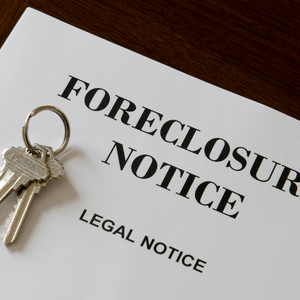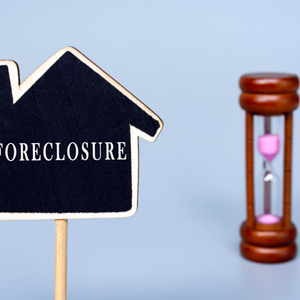
Steps to Take When You Receive a Foreclosure Notice
Receiving a foreclosure notice on your Washington home is never easy, but acting without delay is one of the best ways to protect your equity and avoid deeper trouble. First, read the document carefully so you know exactly what it says, what date any response is due, and which mortgage payment issues the lender cites.
Reaching out to your lender right away is critical; many institutions will consider loan modification, repayment plans, or a temporary forbearance if they see you are earnest. You will strengthen that discussion by assembling pay stubs, bank statements, tax returns, and any correspondence that shows current income and expenses.
Working with a HUD-certified housing counselor brings a third-party expert into the picture, one who understands Washington law and can map out options specific to your case. You may also want to look into state programs such as the Home Rescue Program or the Foreclosure Fairness Act, both designed to give homeowners extra time or financial leverage.
Throughout the process, keep yourself up to date on the statutory timelines, notification requirements, and mediation rights under Washington law so you can plan each move deliberately. The sooner you take these steps, the stronger your position becomes, and the better your prospects of preserving your home and Sell With Isaac is here to support you every step of the way.
Navigating the Judicial vs Non-judicial Foreclosure Process

For homeowners in Washington, determining whether a foreclosure will proceed judicially or non-judicially is a critical first step in preventing loss of property. The distinction influences how much time a homeowner has, what defenses are available, and the overall strategy one may adopt to preserve the home.
Judicial foreclosure requires filing a lawsuit, which affords longer notice periods and opens doorways to options such as loan modification or structured repayment. In contrast, non-judicial foreclosure relies on a deed of trust and a delegated trustee sale, enabling creditors to move through the steps rapidly and often catching homeowners off guard.
Awareness of the applicable process permits customized action; facing non-judicial proceedings, home-owners should contact the lender, order a title report, and obtain legal assistance within weeks. A judicial case, while still serious, grants extra months and offers defenses that may halt the action if a responsive pleading is timely filed.
Both paths allow the use of tools like reinstatement, forbearance, refinancing, or sale of the property, but only if intervention occurs before the final auction or court decree. Fully understanding the mechanics thus transforms fear into informed maneuvering, protecting both investment and family stability.
Short Sale Vs. Foreclosure: What Washington Homeowners Need to Know
Washington homeowners facing financial stress frequently consider two pathways: a short sale or a formal foreclosure. Grasping how these processes differ can shape both immediate outcomes and long-term credit standing.
A short sale lets owners sell their residence for an amount below the mortgage balance, provided the lender consents. Because the sale is cooperative rather than adversarial, credit reporting tends to be less severe than with a foreclosure, in which the bank recaptures the property after many missed payments.
Choosing a short sale may also spare owners the drawn-out court proceedings usually tied to foreclosure; some lenders will even waive the right to pursue a deficiency balance after the sale closes. Because of this, borrowers who complete a short sale often find it possible to re-enter the housing market sooner than if they endure a foreclosure.
Yet the path is rarely straightforward: it demands timely updates to multiple parties, clear documentation, and a firm grasp of Washington’s appraisal and settlement rules. For these reasons, prospective sellers should partner with a knowledgeable agent and, when needed, seek legal counsel so they can weigh alternatives, safeguard their rights, and work steadily toward avoiding foreclosure. If you’re looking to sell your home for cash in Vancouver or nearby cities, this approach can help you make informed, timely decisions.
The Importance of Acting Quickly to Stop Foreclosure Proceedings
When foreclosure threatens your Washington home, the emotional weight can be heavy, yet a rapid response remains the most effective shield against action. The earlier you step in, the broader the menu of solutions stays open.
Reaching out to your lender without delay opens the door to possible loan modification or repayment options, often freezing the legal clock. Investigating refinancing and tapping government-approved housing counselors early adds extra tools to your defense.
Acting quickly also creates breathing room to compile documents required for programs like the state’s Foreclosure Fairness Act, which pairs homeowners with mediators. Partnering soon with attorneys familiar with Washington rules can further clarify your best line of attack, especially if you’re looking to sell your home for cash in Amboy or nearby cities.
Key Strategies for Preventing Foreclosure on Your Home

Preventing foreclosure on your Washington home demands action that is both timely and strategically planned. The first step is to talk openly with your lender the moment you foresee trouble meeting your mortgage obligations.
Many lenders are willing to grant a brief forbearance or modify the loan, easing pressure by either suspending payments for a few months or changing the interest rate or term. Alongside this, a candid review of your household budget is critical; trim discretionary expenses so that your mortgage commitment remains at the forefront.
Federal and state programs still exist to shield at-risk homeowners, and options such as the Home Affordable Modification Program HAMP provide legal pathways to lower monthly costs. In more severe cases, selling assets or even pursuing a short sale of your house might be necessary if sustaining the loan proves impossible.
Engaging a HUD-approved housing counselor adds further protection, as these professionals offer tailored advice and negotiating leverage that individual borrowers often lack. By following these steps without delay, homeowners can stabilize their finances and substantially lower the odds of losing their houses to foreclosure.
How to Negotiate with Your Lender to Avoid Foreclosure
Navigating Washington’s foreclosure-prevention process relies heavily on skillful negotiations with your mortgage lender. Start by keeping communication open; a consistent dialogue shows that you are serious about resolving the problem.
Reach out as soon as a payment is missed, and share a complete picture of your finances, including incomes, expenses, and any recent drops in income. Ask for a loan modification, which could stretch the term or lower the rate so that monthly bills feel manageable.
In addition, a forbearance agreement may be available; under this plan, the lender either reduces or pauses payments for a set time. Be clear about any temporary setbacks-job loss, illness, or other emergencies- and outline a realistic path back to stability.
Have supporting documents ready: pay stubs, medical bills, and bank statements, to back up what you say and prove your commitment to keeping the home. Working with a Washington-approved housing counselor can simplify the process; such an expert knows state rules, warns you about scams, and helps weigh every option before foreclosure becomes inevitable.
How to Stop Foreclosure in Washington State?
If you are facing foreclosure in Washington State, taking informed action as quickly as possible can help you keep your home. Start by reaching out to your lender; many banks are willing to discuss loan modifications or repayment plans once they see you are trying to resolve the issue.
State-sponsored programs, including those offered through the Washington Homeownership Resource Center, keep a staff of counselors ready to explain options and link you to local services that can assist. Pairing that benefit with free advice from a HUD-approved housing counselor often makes it easier to steer through paperwork and complicated finances.
For homeowners who decide that selling is the cleanest way forward, a short-sale arrangement may forgive some debt, but that agreement still rests on skillful negotiation with the bank. Bankruptcy should remain a last resort; filing triggers an automatic stay that halts proceedings for a time, yet leaves a lasting mark on your credit file.
By learning the available paths and moving promptly, you raise the odds of stopping foreclosure in Washington and protecting your home.
How Long Does It Take to Foreclose on a House in Washington State?
In Washington State, the average foreclosure cycle takes roughly 120 days from initial filing to the sale of the property, though unique factors can lengthen or shorten that window. Homeowners confronting financial strain should familiarize themselves with this timetable to evaluate their options and formulate a timely response.
The journey begins when the lender files a Notice of Default, usually after three or four missed payments. That document gives the borrower a 30-day grace period to bring the account up to date or contest any errors before the case moves deeper into the court system.
Absent that remedy, the lender then records a Notice of Trustee’s Sale, which publicly announces an auction set at least 90 days in the future. Knowing these discrete deadlines empowers homeowners to pursue loan modifications, refinancing, or even a compassionate short sale that spares their credit from severe damage.
Early outreach to HUD-certified housing counselors or local attorneys can add strategic clarity and access to emergency funds, keeping families in their homes while they explore a workable plan.
What Is the Best Way to Stop a Foreclosure?

If you learn that foreclosure proceedings have started against your Washington home, acting quickly and knowledgeably is often the most effective way to stop the slide. A good first step is to reach out to your loan servicer; speak openly about your hardship and ask them to explain options such as loan modification, a temporary repayment plan, or even a short sale if moving becomes inevitable.
You should also check whether any of the government-sponsored programs, for instance, those from the Federal Housing Administration or the Home Affordable Modification Program, fit your circumstances. An approved HUD counselor can review your finances with you, making sure no overlooked eligibility criteria stand in the way of better terms, a forbearance period, or possibly a refinance.
Consistent, honest communication with the lender, coupled with an organized set of pay stubs, tax returns, and the current loan statement, places you in a stronger negotiating position under Washington law. Many homeowners who succeed in keeping their houses say that preparation, combined with a willingness to ask questions and document promises, ultimately tipped the balance.
If uncertainty remains, or if the foreclosure notice is already dated, consulting a local attorney confident in real estate issues may clarify your legal options and shield your rights.
Can I Refinance My Home to Avoid Foreclosure?
Refinancing a mortgage can stabilize a household threatened by foreclosure, and Washington homeowners now confronting volatile property values and climbing interest rates may find the strategy especially worthwhile. A new loan structured with a lower rate or an extended term could trim the monthly charges, giving the family room to regroup and thereby reducing the odds of falling behind.
Essentially, refinancing wipes the slate and places a fresh mortgage over the old one, preferably on friendlier terms. In many cases, that adjustment supplies the immediate cash-flow relief needed to forestall foreclosure in Washington, where court timelines can still be rushed.
Speed matters. As rates drift higher and home equity shrinks, each week spent deliberating narrows the window of available programs and may deepen the applicant’s overall distress. Borrowers, then, should compare local lenders quickly, tally any origination points and closing fees, and be plain-spoken about the loan’s duration, 15 years versus 30, for example, and how it fits their goals.
Professionals can help, so seeking a housing adviser or certified counselor acquainted with Washington’s laws and neighborhoods often pays dividends. Ultimately, no two situations mirror one another; a careful audit of income, debts, and all new documents remains the bedrock practice in using refinancing to avert foreclosure.
Facing foreclosure and need to sell your home fast? Sell With Isaac can help you stop foreclosure with a quick, hassle-free sale. We offer fair cash offers, buy homes as-is, and handle all the paperwork, so you don’t have to worry about repairs or delays. Time is critical, contact us at (360) 207-4133 for a no-obligation offer and take the first step toward protecting your financial future. Get started today!
Helpful Washington Blog Articles
- Sell A Mold-infested House In Washington
- Sale Of A Washington Home With Unpermitted Work
- Seller Legally Back Out Of A Contract In Washington
- Selling Your Home By Owner In Washington State
- Prevent Foreclosure On Your Washington Home
- Documents For Selling A Home In Washington State
- Appraisal Required Repairs For Washington Homeowners
- Selling A Fire-damaged House in Washington
- Washington State Inheritance Laws For Real Estate And Property
- Selling A Washington Home With Foundation Problems
- Selling A House With A Reverse Mortgage In Washington
- Navigating The Sale Of Inherited Property With Multiple Owners In Washington

| FORECLOSURE AUCTION | MORTGAGE DEFAULT | FORECLOSES | FORECLOSURE SALE | FIRST MORTGAGE | MORTGAGE DEBT |
| MORTGAGE LOAN | MEDIATOR | LEGAL SERVICES | LAWYER | DEED | MORTGAGE MODIFICATION |
| MONEY | LAWSUIT | DEPARTMENT OF COMMERCE | U.S. | THE UNITED STATES | SCAM |
| HOTLINE | DEFICIENCY JUDGMENTS | CREDIT CARD | CONDO | CONDOMINIUM ASSOCIATIONS | CONDOMINIUM |
| COMMERCE | U.S. DEPARTMENT OF HOUSING AND URBAN DEVELOPMENT (HUD) | TAXES | PROPERTY TAXES | FHA-INSURED LOAN | EQUITY |
| CONSUMER ADVOCATES | CONSUMER PROTECTION | CONSUMER | THE COVID-19 PANDEMIC | COUNSELOR OR ATTORNEY | |
| HOUSING COUNSELOR OR ATTORNEY | WASHINGTON STATE DEPARTMENT OF | DEPARTMENT OF FINANCIAL INSTITUTIONS |
